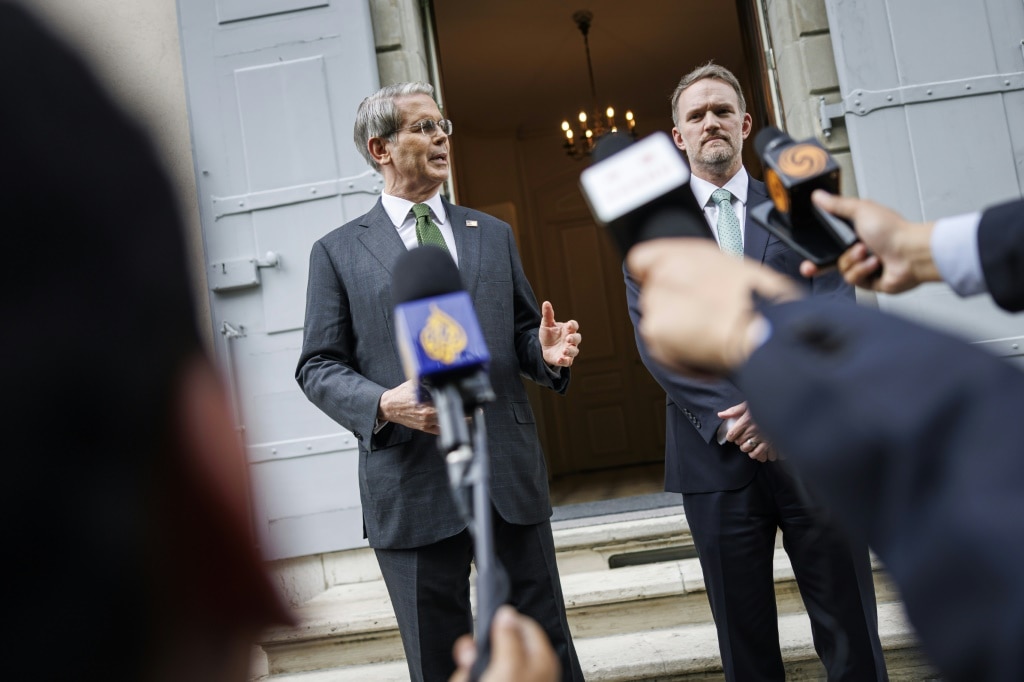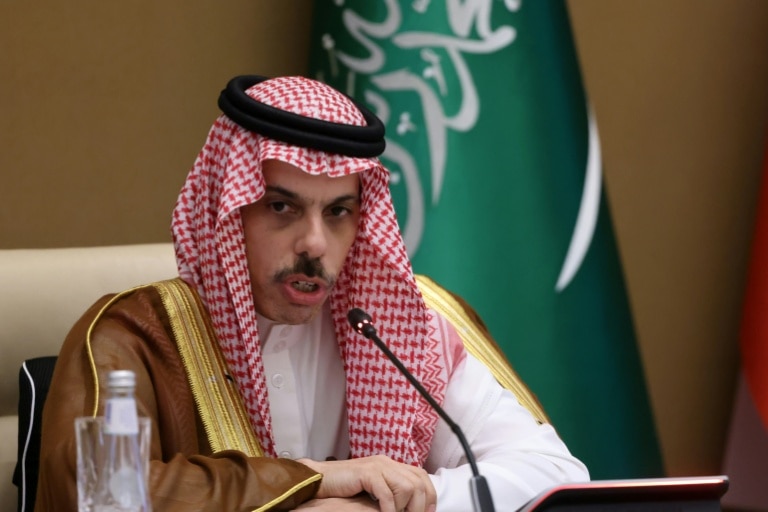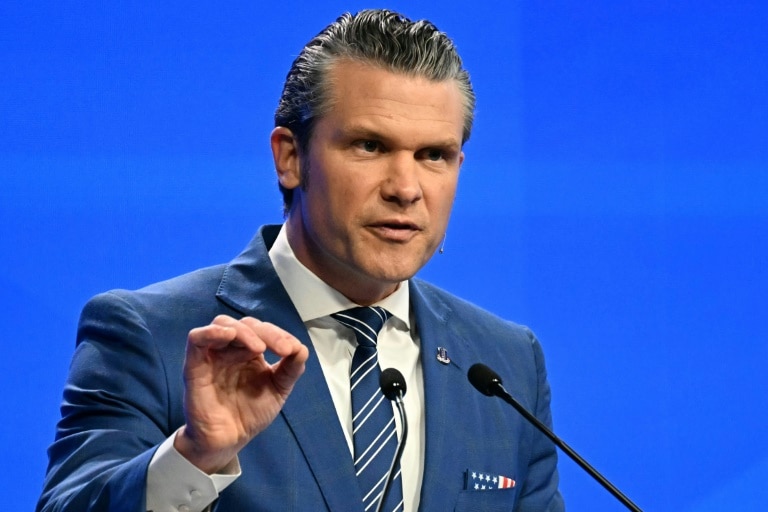Trump accuses China of violating tariff de-escalation deal
Trump accuses China of violating tariff de-escalation deal

Breaking News
Don't miss out on the headlines from Breaking News. Followed categories will be added to My News.
US President Donald Trump signaled renewed trade tensions with China Friday, arguing that Beijing had "totally violated" a tariff de-escalation deal, while saying he expects to eventually speak with Chinese leader Xi Jinping.
Trump's comments came after US Treasury Secretary Scott Bessent said that trade talks with China were "a bit stalled," in an interview with broadcaster Fox News.
Top officials from the world's two biggest economies agreed during talks in Geneva this month to temporarily lower staggeringly high tariffs they had imposed on each other, in a pause to last 90 days.
But on Friday, Trump wrote on his Truth Social platform: "China, perhaps not surprisingly to some, HAS TOTALLY VIOLATED ITS AGREEMENT WITH US," without providing further details.
The impasse came as China's slow-walking on export license approvals for rare earths and other elements needed to make cars and chips fueled US frustration, the Wall Street Journal reported Friday.
Key to the tariff de-escalation pact was a demand that China resume rare earth exports, the report added, citing sources familiar with the matter.
Earlier Friday, US Trade Representative Jamieson Greer told CNBC: "The Chinese are slow-rolling their compliance, which is completely unacceptable."
While Greer did not go into specifics, he noted reports that Beijing continues to "slow down and choke off things like critical minerals and rare earth magnets," adding that the US trade deficit with China is still "enormous."
Greer said that Washington was not seeing major shifts in Beijing's behavior.
Trump's deputy chief of staff Stephen Miller told reporters that with China failing to fulfill its obligations, "that opens up all manner of action for the United States to ensure future compliance."
On Thursday, Bessent suggested that there could be a call between Trump and Xi eventually.
Trump told reporters Friday afternoon: "I'm sure that I'll speak to President Xi, and hopefully we'll work that out."
US stock markets closed mixed, after fluctuating in the day on jitters that Trump could return to a more confrontational stance on China.
- Forthcoming deals? -
Washington is also in "intensive talks" with other trading partners, Greer told CNBC, saying he has meetings next week with counterparts from Malaysia, Vietnam and the European Union.
The meetings come as he heads to Organisation for Economic Cooperation and Development (OECD) talks in Europe.
"The negotiations are on track, and we do hope to have some deals in the next couple of weeks," Greer said.
Washington and Tokyo are making progress towards a deal, Kyodo News reported, citing Japan's tariffs envoy Ryosei Akazawa.
Akazawa, who met with Bessent and Commerce Secretary Howard Lutnick in Washington, expects another round of talks before mid-June.
But Trump's tariff plans are facing legal challenges.
A US federal trade court ruled this week that the president overstepped his authority in tapping emergency economic powers to justify sweeping tariffs.
It blocked the most wide-ranging levies imposed since Trump returned to office, although this ruling has been stayed for now as an appeals process is ongoing.
The decision left intact, however, tariffs that Trump imposed on sector-specific imports such as steel and autos.
Greer said it was important to get through the legal process so partners have a "better understanding of the landing zone."
Since Trump returned to the presidency, he has slapped sweeping tariffs on most US trading partners, with especially high rates on Chinese imports.
New tit-for-tat levies on both sides reached three digits before the de-escalation this month, where Washington agreed to temporarily reduce additional tariffs on Chinese imports from 145 percent to 30 percent.
China, meanwhile, lowered its added duties from 125 percent to 10 percent.
The US level is higher as it includes a 20 percent levy that Trump imposed on Chinese goods over the country's alleged role in the illicit drug trade -- an accusation that Beijing has pushed back against.
The high US-China tariffs, while still in place, forced many businesses to pause shipments as they waited for both governments to strike a deal.
bys/nl
Originally published as Trump accuses China of violating tariff de-escalation deal






